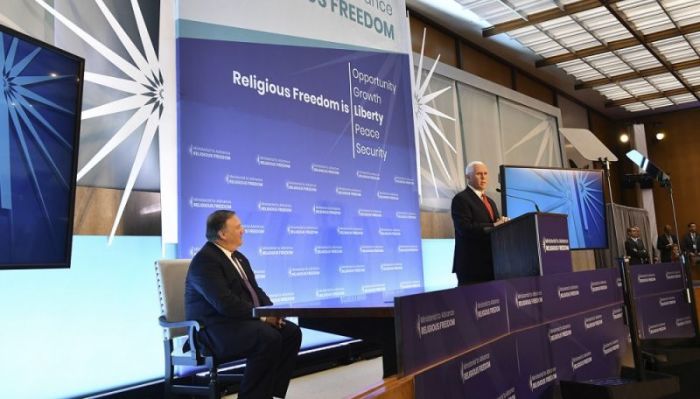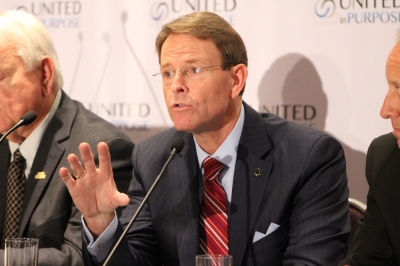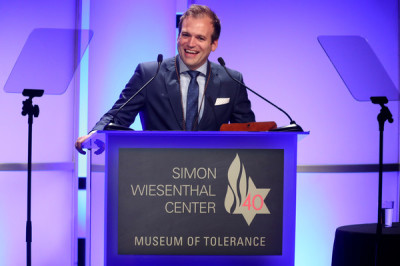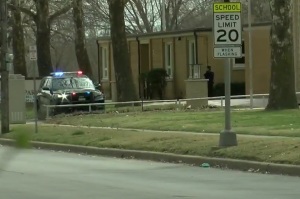Trump Harms Religious Freedom by Intolerance to Some, Favoritism to Evangelicals, NYT Says; FRC Responds

Evangelical leaders have responded to the New York Times' claim that the Trump administration is undermining its own priority of protecting religious freedom by emphasizing the policy priorities of evangelical Christians.
On Saturday, The New York Times editorial board published an opinion piece titled "A Too-Narrow Vision of Religious Freedom."
The piece essentially argues that although "the Trump administration embraces a laudable desire to expand religious tolerance" across the globe, it is the administration's "own intolerance toward some" that "undermines the message."
For examples of intolerance, NYT mentions "Trump's disgraceful attempts to ban Muslims from some countries from entering the United States; his reprehensible treatment of refugees and immigrants, especially in separating children from their parents; and his continued support for the Saudi-led war in Yemen, which has caused a humanitarian catastrophe."
The op-ed begins by applauding the administration for holding the first-ever State Department Ministerial to Advance Religious Freedom in July that was attended by delegations from over 80 countries.
However, the piece says, the ministerial's good intentions are "in danger of being undermined by the administration's political agenda, which emphasizes the American strain of evangelical Christianity over other beliefs."
Additionally, the op-ed argues that the administration's immigration and refugee resettlement policies "belie its stated defense of religious rights."
"The current administration took its advocacy to a new level with the three-day conference, whose invited participants were more diverse than many expected. Despite his own strict Catholic leanings, Sam Brownback, the ambassador for international religious freedom, said the goal was to protect religious freedom for all, 'not to say we favor this faith or that faith,'" the op-ed reads.
"Yet, the event, headlined by Vice President Mike Pence, an evangelical Christian, was clearly meant to appeal most to the evangelicals who are among the president's most fervent political supporters, reflecting a selectivity that is antithetical to the very concept of religious freedom."
At least two informal evangelical advisers to the Donald Trump White House who also serve on the United States International Commission on International Religious Freedom objected to arguments made in the New York Times piece.

"It is a poor piece of journalism," Family Research Council President Tony Perkins told The Christian Post on Monday. "They go on to provide nothing that supports [their argument] in this piece. I am wondering how the American strain of evangelical Christianity potentially undermines these good intentions.
"In fact, it is evangelical Christianity that understands every person has a choice that is driving religious freedom, especially given the previous eight years where evangelicals understood what it was like to have the government against you," he added in reference to the Barack Obama administration.
Fellow USCIRF commissioner Johnnie Moore, an evangelical public relations executive and author, told CP via email that the New York Times piece included a "few points of worthwhile criticism," but also included "too much cynicism."
"As for evangelicals, when we are advocating for religious freedom we are advocating for religious freedom for everyone (take my work with Ahmadi Muslims in Pakistan or our inclusion of Iraq's Shiites in the Genocide resolutions against ISIS or Jehovah's witnesses in Russia or the Rohingya in Burma)," Moore, who was appointed to USCIRF by President Trump this May, wrote. "By its nature, you can't have religious freedom at all unless you have religious for all."
The New York Times piece also offered a critical view of the administration's focus on securing the release of imprisoned Pastor Andrew Brunson, who has been detained in Turkey for nearly two years on charges of terrorism that the U.S. views as baseless.
The op-ed suggests that Trump's recent actions against Turkey in hopes of securing Brunson's release has come "under pressure from evangelicals" and criticized Trump for being "silent about 19 other detained Americans, including a NASA scientist who is Muslim."

"It isn't true ... that it was evangelical pressure that drove the administration to prioritize Brunson in the way that they have," Moore, also a CP senior editorial adviser, wrote. "It was the Turkish president himself who made Brunson a special case, and we ought not to think that just because there isn't a public discussion about other detained Americans that there aren't private actions being undertaken."
The New York Times op-ed also criticizes evangelicals for "increasingly promoting religious freedom as 'our first freedom'" and states that evangelicals are doing so because "human rights are becoming politicized and conflated with economic and social goals, such as equal rights for workers, women and gay and transgender people."
Responding to that claim, Moore said, "I wouldn't have disregarded so quickly the historic reasoning behind the 'first freedom' approach of religious freedom advocates, which is principally tied to the fact that it was for such freedom that our founders left their homes and took a harrowing journey to the new world. Religious freedom was sufficiently prioritized by our founders that it merited the first clause of the first sentence of our first amendment. It is knit into the very DNA of America — we have a democracy whose footers are cemented in this freedom, more than any other, perhaps."
The New York Times op-ed notes that the Trump administration isn't the "first to speak up for religious liberty" and goes on to mention how the International Religious Freedom Act was passed by Congress in 1998, mandating the State Department to issue an annual report on international religious freedom.
The New York Times op-ed also explained that the Obama administration and previous administrations have "tended to consider religious rights within the broad spectrum of human and civil rights."
Moore warned that, too often, there has been a "secular approach to human rights that either puts questions of religious freedom on the back burner or doesn't give sufficient recognition to the role religion plays in foreign policy, generally speaking."
"Religious freedom needs prioritized and it needs focus. It can't simply be one part of a human rights portfolio for — in the end — recent history tells us that it will always be a lesser priority," Moore argued. "All one needs to do is remember how difficult it was for us to get the Obama administration to discuss the [Islamic State's] persecution of Christians and Yazidis in religious terms. Ultimately, the genocide resolutions were opposed by most of the senior advisors in the administration."
In fact, when former Secretary of State John Kerry declared that IS had committed genocide against Yazidis, Christians and others in Iraq and Syria in March 2016, he did so by stating that the declaration was made "in my judgement." Some speculated at the time whether that was a sign that Kerry and others in the Obama administration were at odds over the genocide declaration.
"They want to claim that the Trump administration is not the first to speak up for religious liberty and then they make reference to the International Religious Freedom Act passed in 1998," Perkins said. "That is fine. But what have other administrations done with it? Certainly, the previous administration did nothing with it because it led to genocide in the Middle East. In fact, Congress had to act to force the Obama administration to recognize the genocide in Iraq."
The New York Times op-ed also stated that Hungary's presence at the ministerial last month "seemed particularly at odds with conference aims of promoting 'equality under the law,'" because Hungary's Prime Minister Viktor Mihaly Orban "has turned the Christian-majority country from democracy to nationalism and Islamophobia."
A delegate from Hungary spoke at the ministerial and called on countries around the would to help religious minorities, especially persecuted Christians, resettle and rebuild in a post-Islamic State Iraq. Hungary has also donated millions directly to Iraqi Christian communities to help this effort.
"They are rebuilding homes. They are rebuilding neighborhoods and they are trying to keep the Christian minority that has been there since the beginning of the Church in that region," Perkins said. "Everyone should applaud because that is what will bring about greater stability in that region of the world or else it is going to continue to be in tumult there."
Perkins concluded by stating that he feels that the New York Times op-ed is part of a larger trend of hostility toward evangelical Christianity that has been on display from the "media elite."
"What do they want? Does that mean that if you are an evangelical Christian, if you actually believe in religious freedom — meaning the ability to live and order your life according to your religious belief — that somehow you are disqualified from serving in one of these capacities?" Perkins asked. "That is essentially what they are saying."
"This is a very subtle but determined effort to exclude evangelical Christians from shaping and directing the policy of our country," Perkins continued. "We don't hold the same view. We don't believe that people that have no faith should not be involved. But we believe that people that have orthodox Christian views have every right to be a participant in this republic of ours and they should not be excluded, which the New York Times would suggest they should be."





























